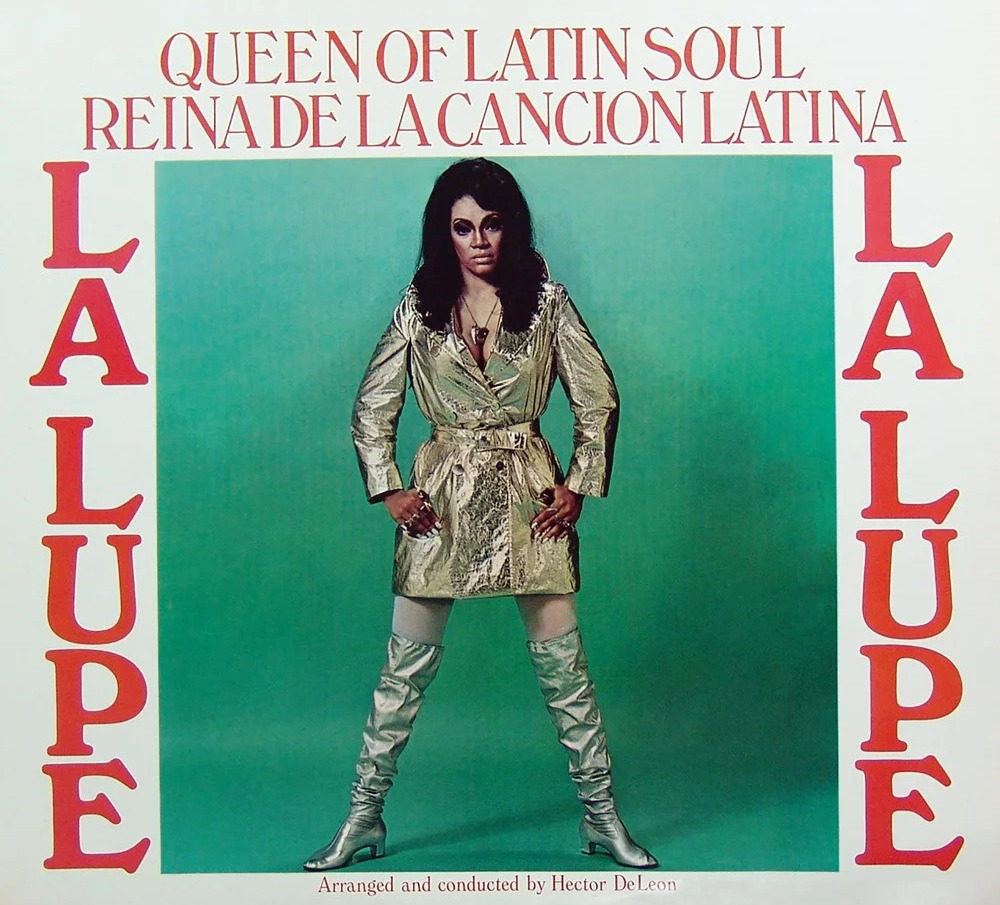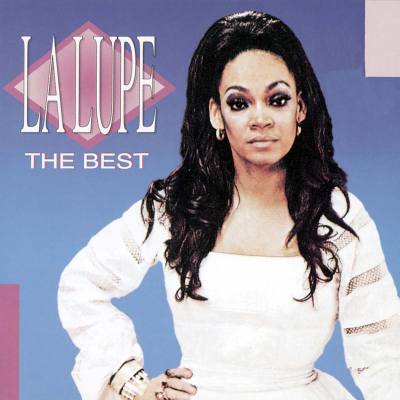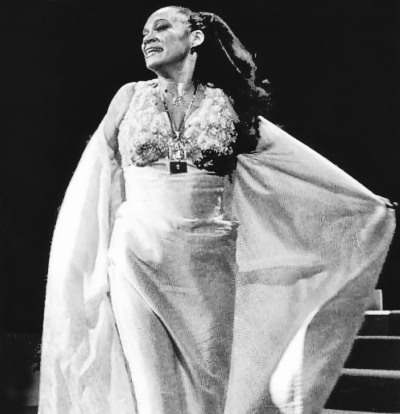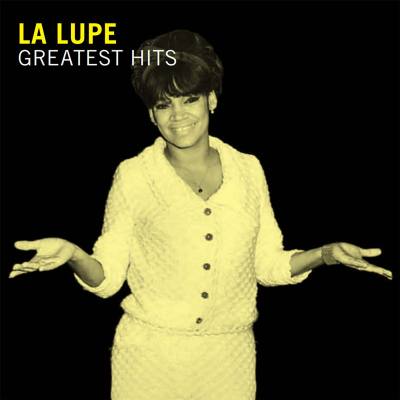🎤 La Lupe 👑
(1936-1992)
La Reina de la Canción Latina
The Queen of Latin Soul
The Queen of Latin Soul

Puro Teatro
👇 🎼 👇
👇 🎼 👇
🎤 🪘🎺 ❤️👏 👑
| La Lupe 🎭 Puro Teatro | Pure Theater 🎭 Lyrics |
| Igual que en un escenario | Just like in a scene |
| Finges tu dolor barato | you pretend your cheap pain |
| Tu drama no es necesario | your drama in unnecessary |
| Ya conozco ese teatro | I already know this play |
| Mintiendo que bien te queda el papel | Lying, how well the role fits you |
| Despues de todo parece | After everything it seems |
| Que es tu forma de ser | that this is your true form |
| Yo confiaba ciegamente | I trusted blindly |
| En la fiebre de tus besos | in the fever of your kisses |
| Mentiste serenamente | you were lying serenely |
| Y el telon cayo por eso | and for this the curtain fell |
| Teatro... | Theater... |
| Lo tuyo es puro teatro | you are pure theater |
| Falsedad bien ensayada | well practiced falsehood |
| Estudiado simulacro | studied semblance |
| Fue tu mejor actuacion | It was your best performance |
| Destrozar mi corazon | destroying my heart |
| Y hoy que me lloras de veras | and now that you cry to me truly |
| Recuerdo tu simulacro | I remember your act |
| Perdona que no te crea | Excuse me if I don't believe you |
| Me parece que es teatro | It seems like theater to me |
| Y acuerdate que segun tu punta de vista yo soy la mala! | and according to your point of view I am the wicked one! |
| Ay! | Ay!! |
| Lo tuyo es puro teatro | Theater |
| Falsedad bien ensayada | you are pure theater |
| Estudiado simulacro | well practiced falsehood |
| Fue tu mejor actuacion | studied semblance |
| Destrozar mi corazon | It was your best performance |
| Y hoy que me lloras de veras | destroying my heart |
| Recuerdo tu simulacro | and now that you cry to me truly |
| Perdona que no te crea | I remember your act |
| Me parece que es teatro | Excuse me if I don't believe you |
| Perdona que no te crea | It seems like theater to me |
| Lo tuyo es puro... | Excuse me if I don't believe you |
| Teatrooooo. | You are pure Theater |

Guadalupe Victoria Yolí Raymond ❤️ Also known as La Yiyiyi.
Born December 23, 1936 Santiago de Cuba, Cuba
Died February 29, 1992 (aged 55) Bronx, New York City, New York, U.S.
Associated acts Tito Puente, Mongo Santamaría, Celia Cruz
Died February 29, 1992 (aged 55) Bronx, New York City, New York, U.S.
Associated acts Tito Puente, Mongo Santamaría, Celia Cruz
La Lupe Queen of Latin Soul
A rebel and innovator, pop singer Lupe Yoli (aka La Lupe or La Yiyiyi) was renowned for her emotional performances. La Lupe Queen of Latin Soul tells her story through character-driven interviews in first-person anecdotes, in an oral history much like those found in a folk ballad or a bolero.
Born in Cuba in 1936, she rose from childhood poverty to scandalous overnight success in the glamorous nightclub scene in La Habana in the 1950s. She emerged in New York in the ’60s as The Queen of Latin Soul, performing alongside peers such as Mongo Santamaria, Tito Puente and Celia Cruz.
The documentary evokes two groundbreaking cultural periods through interviews and rare archival footage: pre-revolutionary 1950s La Habana and the burgeoning Latin music scene in New York City in the 1960s and 1970s.
Born in Cuba in 1936, she rose from childhood poverty to scandalous overnight success in the glamorous nightclub scene in La Habana in the 1950s. She emerged in New York in the ’60s as The Queen of Latin Soul, performing alongside peers such as Mongo Santamaria, Tito Puente and Celia Cruz.
The documentary evokes two groundbreaking cultural periods through interviews and rare archival footage: pre-revolutionary 1950s La Habana and the burgeoning Latin music scene in New York City in the 1960s and 1970s.

A long-time gay icon often described as the first performance artist, La Lupe remains ahead of her time.
The Film
A historic, sepia-toned image singing while hitting a cymbal with a drumstick
A rebel and innovator, pop singer Lupe Yoli, otherwise known as La Lupe or La Yiyiyi, was renowned for her emotional performance style. Her renditions of classics such as “My Way,” “Fever” and “Going Out of My Head” were famous worldwide. But the legendary Cuban-born star was also a single mother of two, a survivor of domestic abuse and a Santera who later became an evangelist Christian speaker. LA LUPE QUEEN OF LATIN SOUL tells La Lupe’s story through character-driven interviews in first-person anecdotes, in an oral history much like those found in a folk ballad or a bolero.
Born in Cuba in 1936, La Lupe first hit La Habana’s music scene in the 1950s. Her older sister Norma Yoli describes her as “just another black girl from Santiago,” one who loved to imitate the singers she heard on the radio. One of these was Olga Guillot, who at the time was Cuba’s reigning bolero singer. As the Cuban Revolution dawned, La Lupe, like many artists at the time, left Cuba, claiming, “There was no room in Cuba for me and the revolution.” She emerged in New York City in the 1960s and 1970s as the Queen of Latin Soul, performing alongside peers such as Mongo Santamaria, Tito Puente and Celia Cruz.
Shot in New York City, Miami, La Habana and Puerto Rico, LA LUPE evokes two groundbreaking cultural periods through interviews and rare archival footage: pre-Revolutionary 1950s La Habana and the burgeoning Latin music scene in New York City in the 1960s and 1970s. The film begins with La Lupe’s funeral in 1992—attended by fans, family and the whole of New York’s Latino music aristocracy—and follows her from poverty to celebrity and back again.
A long-time gay icon who was often described as the first performance artist, La Lupe was ahead of her time. In trying to discover who Lupe was, LA LUPE also provides a collective portrait of mid-20th-century Latin musical history.
.gif)

.gif)

No comments:
Post a Comment